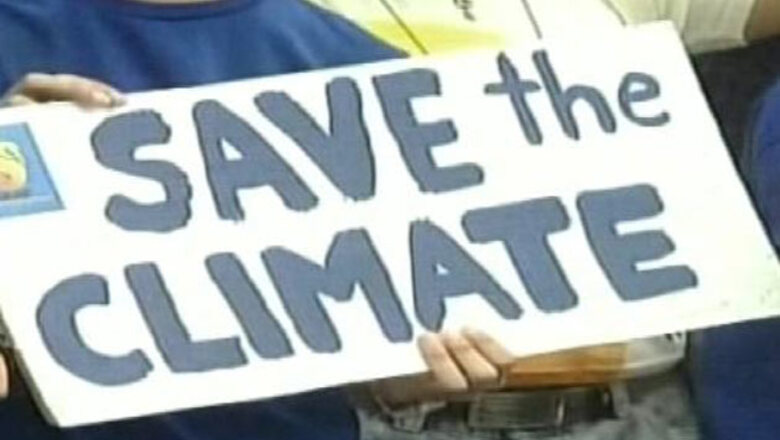
views
Cancun (Mexico): India came under fire to get its commitment to tackle climate change under a legally binding global treaty, but it declared this unacceptable as the UN climate summit became deadlocked in Cancun on Wednesday despite round-the-clock negotiations behind closed doors.
The deadlock at the November 29 - December 10 UN Framework Convention on Climate Change conference stemmed from the refusal by Japan, Russia and some other developed countries to commit themselves to legally binding greenhouse gas (GHG) emission reductions under the Kyoto Protocol after 2012.
The formula suggested by other rich countries to resolve this impasse was to extend the current commitment period under the protocol beyond 2012, if India and other emerging economies agreed to join a treaty that would legally bound them down to their commitment to reduce emission intensity.
Environment Minister Jairam Ramesh had declared earlier this would be "completely unacceptable" to India, and leaders of government delegations from China, Brazil and South Africa have echoed the same sentiment.
A senior member of the Indian government delegation told IANS on condition of anonymity that despite this, "developed countries tried very hard throughout Tuesday and through the night to make us agree, but we all stoutly resisted it. They threatened us that they would not give any money (to combat climate change and its effects) and hold all other agreements hostage. But this is one point on which we cannot give in, and we told them so."
This renewed bickering over an old issue threatens to wipe out whatever little progress had been achieved here to tackle the climate change caused by ever-increasing GHG emissions, which is already reducing farm output worldwide, making droughts, floods and storms more severe and frequent, and raising the sea level. That progress was in the area of starting forestry projects to capture carbon dioxide - the main GHG - from the air.
But that is now in jeopardy, and so is the progress made on transferring green technologies to poor countries. Agreement on that fell down at the last hurdle on Tuesday night, as rich countries refused to let any discussion on intellectual property rights to be included in the proposal.
A lot of work has been done in Cancun on how this 'technology mechanism' will operate, but a final decision is now likely to be carried over into 2011.
Also in jeopardy are the efforts made by India to build trust between industrialised countries and emerging economies. One of the prickliest issues in these protracted negotiations has been the insistence by the US that it would do nothing - nor allow anyone else to do anything effective - unless China and India made the steps they were taking to tackle GHG emissions "measurable, reportable and verifiable".
All emerging economies have opposed this strongly for years due to fears over intrusion on sovereignty.
A few weeks back, Ramesh came up with a proposal that would allow "international consultation and analysis" of these actions, a move that was welcomed in public by the ministers of China, Brazil, South Africa and by the chief negotiators of the US and the European Union.
Bureaucrats from all these countries have been working to flesh out the proposal, but now, with just three days left for the summit, everything has been put on hold due to the Kyoto Protocol logjam, because, as one American negotiator put it, "nothing is final till everything is final".
As the negotiators met back in open session in Cancun on Wednesday morning, the chairs of various groups could do little but appeal to the over 100 ministers and around 30 heads of state assembled here to provide "political direction" that would break the logjam over the protocol - the only legally binding global treaty that obliges rich countries to reduce their GHG emissions.
The president of the conference, Mexico's Foreign Minister Patricia Espinoza, reminded the delegates gathered here that "every state has argued for continuation of our effort (on the Kyoto Protocol) well beyond 2012" and hoped that would form the basis of a compromise. But the chances looked bleak.




















Comments
0 comment